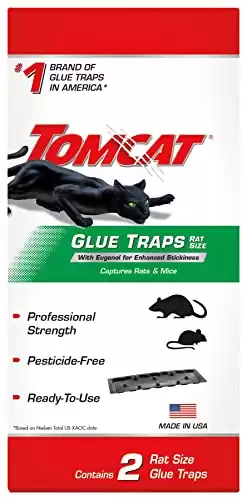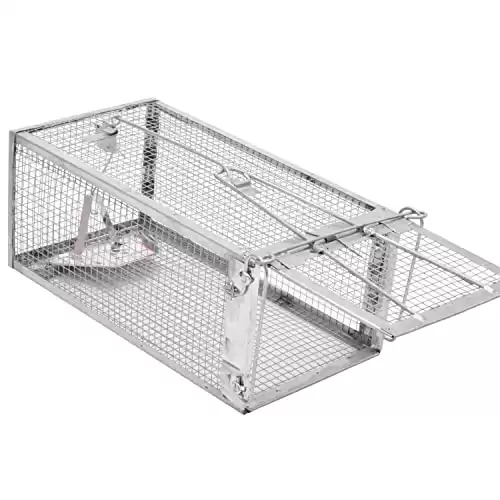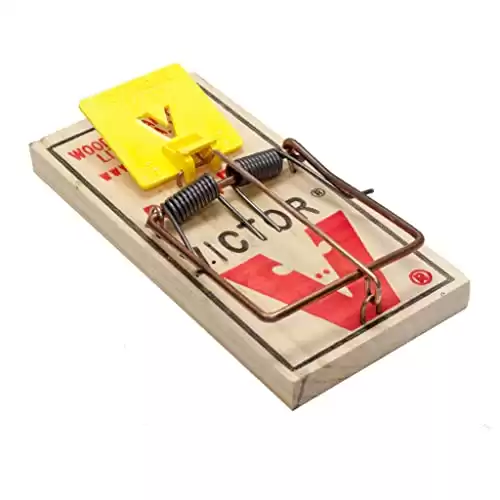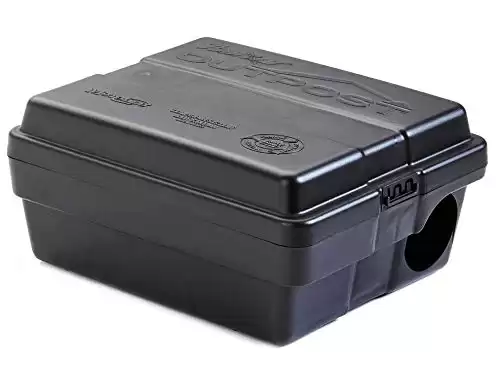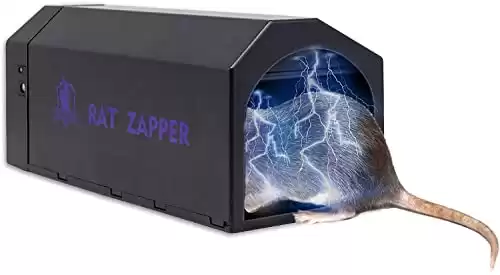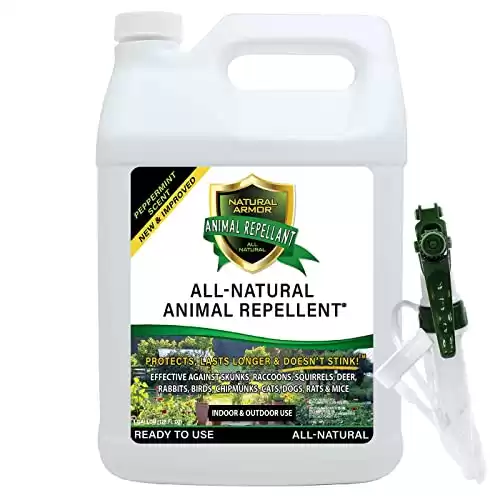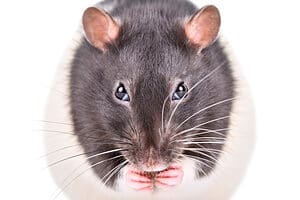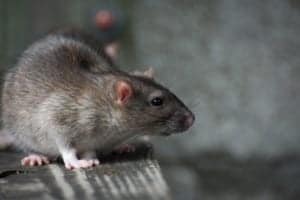Although many love having rats as pets, as unwanted guests in your home, they can cause damage and health issues. Consequently, people turn to solutions to rid their space of these creatures. One popular method for getting rid of rats is rodenticides or rat traps. However, some people prefer not to use rodenticides or traps as they may contain harsh chemicals, harm their animals or children, or can result in a slow death for the rat. Because of this, many people search for home remedies to kill rats with baking soda and others. But does killing rats with baking soda work? Even if it does, should you use this method?
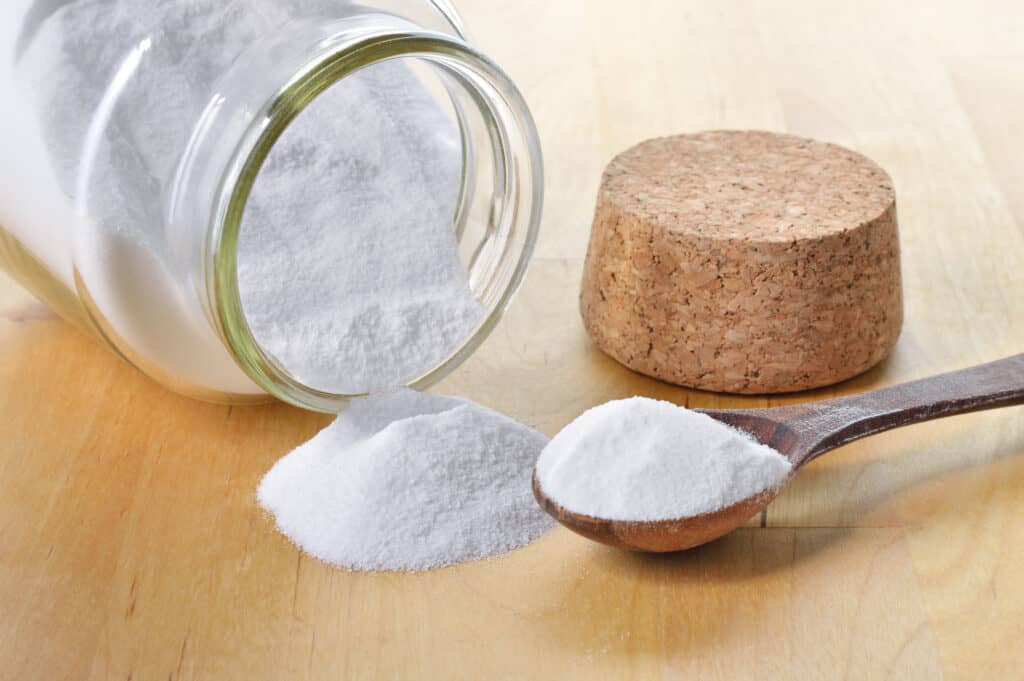
Does baking soda kill rats? In theory, baking soda may kill rats. In practice, rats don’t like eating baking soda.
©Geo-grafika/Shutterstock.com
Does Baking Soda Kill Rats?
People believe baking soda kills rats because rats cannot burp or pass gas. So, after ingesting baking soda, this product reacts with the acids in the rat’s stomach and creates carbon dioxide. This carbon dioxide then builds within the rat and causes a rupture or blockage that eventually kills the rat. This method may work, but there is no guarantee that it will be effective and is not humane.
Firstly, a rat would have to ingest two to three grams of baking soda to die. The rat would also have to consume it in one go, which is unlikely as baking soda is not one of the rat’s favorite foods and two to three grams is a lot to eat all at once. Secondly, the rat may be immune to baking soda. Rats have a robust immune system and may develop immunity or resistance to baking soda and other poisons.
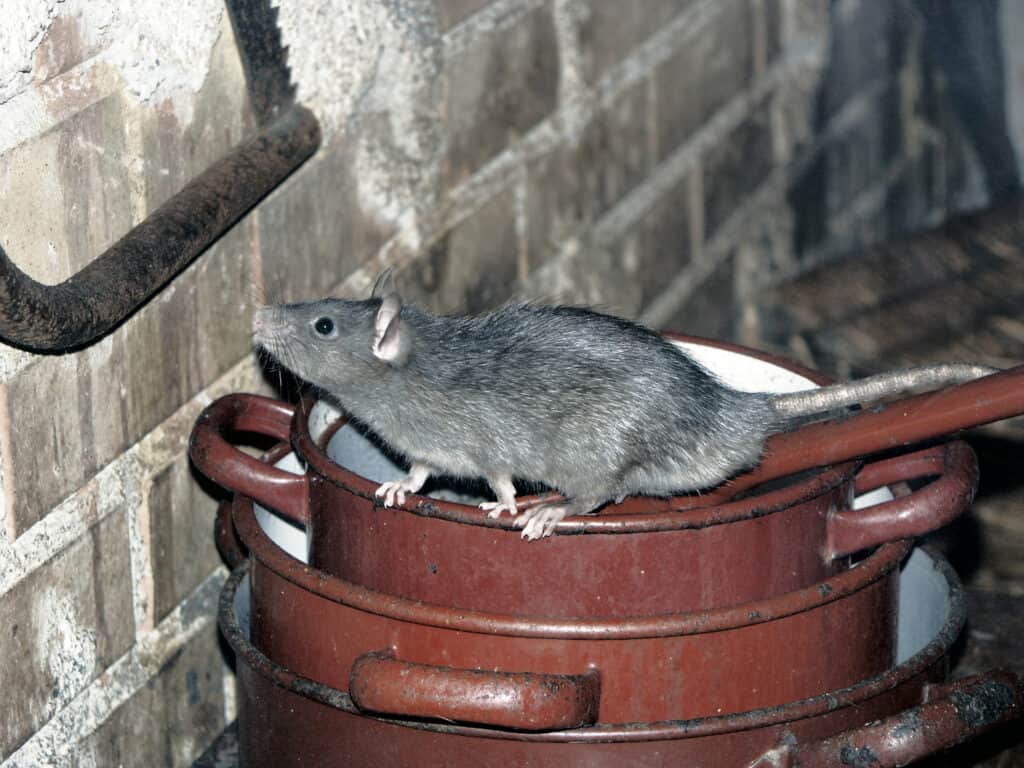
Rats leave droppings and urine in your home and carry diseases that can make you and your family ill.
©iStock.com/PeterHermesFurian
Should You Use Baking Soda To Kill Rats?
The simple answer is no. This form of pest control is inhumane and would likely cause more problems for you. As the carbon dioxide builds up inside the rat’s stomach, it will experience pain and discomfort. And even though it will take time for a blockage to form or for the rat’s stomach to rupture, the rat will die a slow and painful death. Many other forms of pest control are effective, humane, do not involve pain, and are safe to use around pets and family members.
A sick rat will also likely look for a place to hide while they recover or in their last few days of life. If you suspect rats in your home, they will know which parts have dark, quiet spaces. If they become sick, they will likely seek out these spaces and end up dying there. Having a decaying rat carcass in a hard-to-reach area, like between the walls, under the porch, or in the ceiling, would be inconvenient and unsafe for you and your family. A decaying rat carcass would also attract other pests, making your life even more unpleasant.
Here are some alternatives…
Using Rat Traps
Instead of using unreliable home remedies like baking soda to kill rats or forms of pest control that are inhumane, you could invest in rat traps. There is a wide range of rat traps, some of which are excellent for catch and release and others that kill the rat quickly and efficiently.
Some of the best rap traps available include the following:
1. Overall Best: Eugenol Tomcat Glue Rat Traps
Rats, mice, other rodents, and insects will become trapped on the sticky glue of this trap. This trap is non-toxic and safe to use around pets and young children.
- Captures rats, mice, other rodents, and insects
- Features Eugenol for enhanced stickiness
- Helps eliminate rat problems
- Easy to use
- Can be placed in small spaces and pathways that rats frequent
2. Best Humane: Kensizer Rat Trap
This trap is perfect if you would like to capture the rat. Rats enter this device, and a trap door then locks them inside. You can then transport the rat to a different location for release.
- Very durable option
- Made with lightweight galvanized steel
- Features a highly sensitive trigger mechanism
- The design is patented
3. Best Snap Trap: Victor 12 Easy Set Rat Snap Trap
Being one of the most sought-after, efficient rat traps, you can use this one around pets and children. Additionally, this bait-based trap is suitable for use within your home or commercial buildings to swiftly and humanely kill the rat.
- Can be used in residential, commercial, or industrial buildings
- Place along walls, near baseboards, and along other pathways frequented by rats
- Pet-safe, but should be placed where children and pets cannot tamper with them
- Constructed from wood, wire, and plastic
- Can be baited with anything, but peanut butter is an effective bait due to its stickiness and "rat appeal"
4. Best Bait Station: Outpost Rat Bait Station
This bait trap is also designed to kill the rat once it traps the animal. Additionally, this trap is secure and lockable, and you can place it anywhere inside or outside your home or building.
- Secure, compact, high-quality, lockable, and tamper-resistant
- Can be installed vertically or horizontally
- Eliminates mice and rats
- Place along walls and other rodent pathways
- Made in the U.S.A.
5. Best Electric:
This trap is one of the best on the market, allowing for a rapid, humane kill or a catch and release option. For example, you can use the kill setting if you don’t want the catch and release option. This setting releases 6,000 to 9,000 volts of electricity for up to 4 minutes for an instant kill.
- Releases 6,000 - 9,000 volts of electricity for up to 4 minutes to kill rats instantly without pain
- Features an anti-escape door
- Also allows users to capture rodents unharmed for release
- A safety switch prevents pets from being electrocuted
- Designed so you can dispose of rodents without seeing or touching them
Scents To Deter Rats
Once you have control of the rat problem, you can experiment with some trusty home remedies to keep rats away. And because rats have a well-developed sense of smell, strong odors are perfect for deterring them from living in your space. This ability can work in your favor as using scents is a more natural form of pest control and is effective if you situate potent odors in the right places.
To understand where to put strong smells, you should learn how to identify weak spots where rats can gain entry to your home and which species want to share your space. For example, the Norway rat prefers to build nests on the ground or below porches, while the roof rat prefers to build nests in high areas. Consequently, the location of the potential nest is where you should focus on scent placement. So, rather than trying to use baking soda to kill rats, you can experiment with these natural deterrents:
Peppermint
Peppermint has an intense aroma and triggers the rat’s fear sense. You could spray a mixture of peppermint oil and water in the area.
- Ready to use
- Lasts up to 90 days
- All ingredients are natural
- Can be used indoors and outdoors
Garlic and onion
There are compounds in garlic and onion that trigger the rat’s sense of fear. These also repel deer and raccoons. You could place garlic cloves or onion slices in and around the house or boil garlic and onions in water to create a spray.
Ammonia
Ammonia is a standard cleaning agent and can be used to discourage rats. For example, you can soak cotton balls or rags in ammonia or spray ammonia where you think rats live.
Bonus: What Attracts Rats to Your Home?
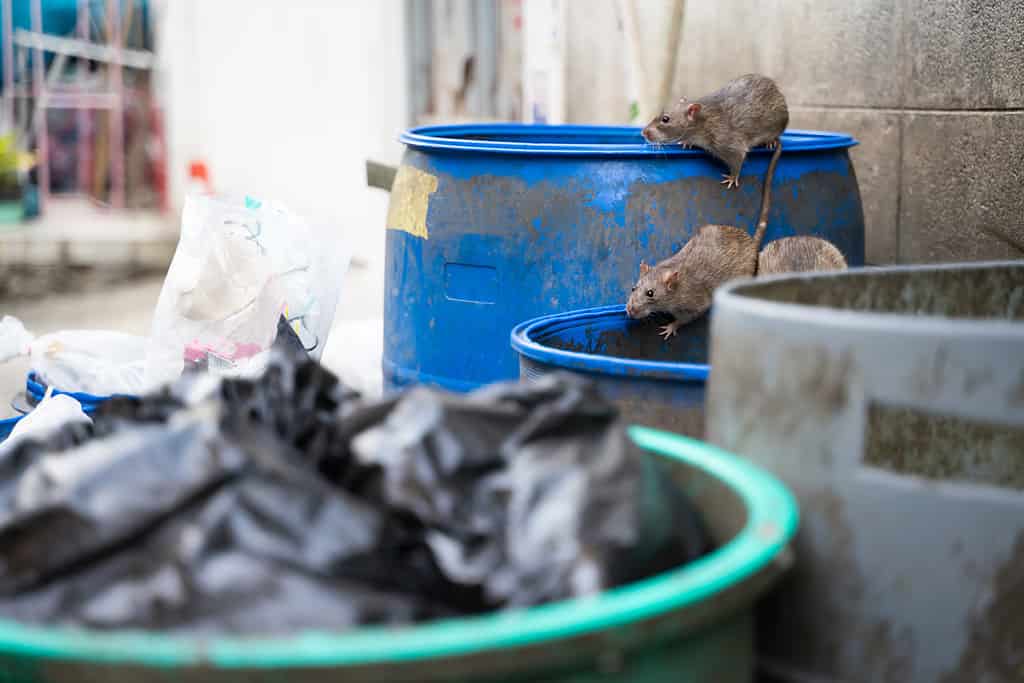
Rats will raid unsealed garbage cans.
©BiZhaMox/iStock via Getty Images
Some things can be done to prevent rats from moving into your home in the first place. This is much easier than dealing with an infestation and less costly. Here are six things that might attract rats to your home:
- Food. Rats are always searching for a stable food source – which is why unsealed garbage cans or leftovers on a kitchen counter will attract them. Rats will also feed on vegetables, fruits, nuts, seeds, or grains. Gardens and fruit or nut trees tempt them – as well as bird feeders and pet food.
- Warmth and Shelter. Rats need a cozy, warm spot to nest in winter and to raise their pups. Unfortunately, they tend to enter homes via the heating systems and other appliances. This can cause damage to the appliances.
- Pet Waste and Open Garbage Cans. As gross as it is – rats will eat dog poop – so it is important to clean up after your pet and to water down the smelly patches of grass. All trash cans near the house should be properly sealed.
- Leaky Pipes. Small leaks in water pipes are a water source for rats – as are pet bowls and bird baths. Repair all leaky faucets to give rats less reason to consider your home as a water source.
- Fruit Trees. Many animals – including rats – are attracted to fruit trees.
- Clutter. Rats look for cover and nesting materials – and clutter in your home or garage can certainly fit the bill.
The photo featured at the top of this post is © Geo-grafika/Shutterstock.com
Thank you for reading! Have some feedback for us? Contact the AZ Animals editorial team.



